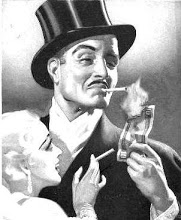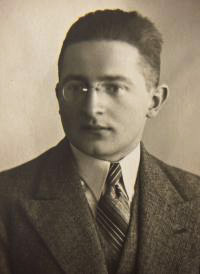In 1929, while studying mathematics at Poznań University, Rejewski attended a secret cryptology course conducted by the Polish General Staff’s Cipher Bureau (Biuro Szyfrów), which he joined in September 1932. The Bureau had had no success in reading Enigma-enciphered messages and set Rejewski to work on the problem in late 1932; he deduced the machine’s secret internal wiring after only a few weeks. Rejewski and his two colleagues then developed successive techniques for the regular decryption of Enigma messages. His contributions included the cryptologic card catalog, derived using the cyclometer that he had invented, and the cryptologic bomb.
Author Archives: Xenomanes
R.I.P.
One day out of the blue one of the sailors dropped dead. They said his forbearers were Filipino. The pallbearers were palsied. He had Willy’s disease up to the bitter end. The doctors put some spanish fly in ointment to no avail.
The salt of the earth
One for all and the devil take the hindmost
Two wrongs don’t make a right.
Three men in a tub, and who do you think they were?
The four fathers of the church and the relics of their foreskins
Five maids a-milking in their silk stockings
Six ways to skin a cat, as the loggers used to say.
Seven brides for seven brothers all too big for their britches
One dreamt she was possessed of the devil.
The day finally came that the hypothesis proved out.

Any man
Any man would be tickled pink to have a double birdsbath of hands in the bush when he was two bits shy of a full deck in the dark of the moon.

silverfish
Lepisma saccharina, frequently called a silverfish or fishmoth, is a small, wingless insect in the order Thysanura. Its common name derives from the animal’s silvery light grey and blue colour, combined with the fish-like appearance of its movements
Startling stories
Lockjaw
Tetanus, also known as lockjaw, is an infection characterized by muscle spasms. In the most common type, the spasms begin in the jaw and then progress to the rest of the body. These spasms usually last a few minutes each time and occur frequently for three to four weeks. Spasms may be so severe that bone fractures may occur. Other symptoms may include fever, sweating, headache, trouble swallowing, high blood pressure, and a fast heart rate. Onset of symptoms is typically three to twenty-one days following infection. It may take months to recover. About 10% of those infected die.
Tetanus often begins with mild spasms in the jaw muscles—also known as lockjaw or trismus. The spasms can also affect the facial muscles resulting in an appearance called risus sardonicus. Chest, neck, back, abdominal muscles, and buttocks may be affected. Back muscle spasms often cause arching, called opisthotonos. Sometimes the spasms affect muscles that help with breathing, which can lead to breathing problems.
Prolonged muscular action causes sudden, powerful, and painful contractions of muscle groups, which is called “tetany”. These episodes can cause fractures and muscle tears. Other symptoms include drooling, excessive sweating, fever, hand or foot spasms, irritability, difficulty swallowing, suffocation, heart attack, breathing problems, irregular heartbeat, and uncontrolled urination or defecation.
Severe cases will require admission to intensive care. Human tetanus immunoglobulin injected intrathecally. Tracheotomy and mechanical ventilation for 3 to 4 weeks. Tracheotomy is recommended for securing the airway because the presence of an endotracheal tube is a stimulus for spasm. Magnesium as an intravenous infusion to prevent muscle spasm, Diazepam as a continuous IV infusion, The autonomic effects of tetanus can be difficult to manage (alternating hyper- and hypotension hyperpyrexia/hypothermia) and may require IV labetalol, magnesium, clonidine, or nifedipine. Drugs such as diazepam or other muscle relaxants can be given to control the muscle spasms. In extreme cases it may be necessary to paralyze the patient with curare-like drugs and use a mechanical ventilator.
Incite of land
her hand in front of the mower
mosquito fleet
broke witching stick
fish eyed philosophers
semaphore
in the little time left we’ll try to ford finnegans wake
amidst the uncanny fragility of consciousness
logwood litmus
human cannonball
saddled with this body
roots pulled out from under
from horn to stirrup
isolated in iceland
baby in a car
facebook hung like an albatross
a google reasons to abandon ship
krumholtz
Gödel met Zermelo
Gödel met Zermelo in Bad Elster in 1931. Olga Taussky-Todd, who was at the same meeting, wrote, “The trouble with Zermelo was that he felt he had already achieved Gödel’s most admired result himself.” His work “Consistency of the axiom of choice and of the generalized continuum-hypothesis with the axioms of set theory” (1940) is a classic of modern mathematics. Towards the end of his life Gödel became convinced that he was being poisoned and, refusing to eat to avoid being poisoned, starved himself to death. Zermelo usually stated his axioms and theorems in words rather than symbols.
Bar Harbor
The second to the last time we went to Bar Harbor we got knocked from stem to stern upside the head as my father drove through the white caps.
Bar Harbor was in the same strip mall as the WOW liquor store, Big Wash coin laundry, and the Vatican Grocery and Halal Meat Mart. Near the corner where OJ got nabbed. Same hemisphere.


